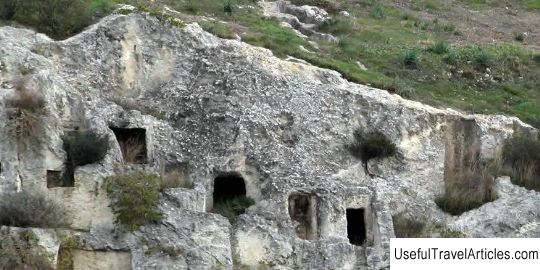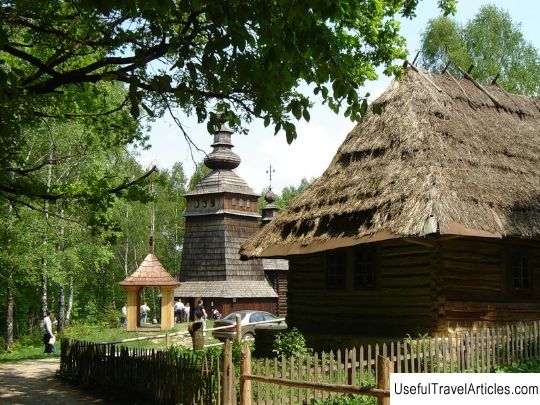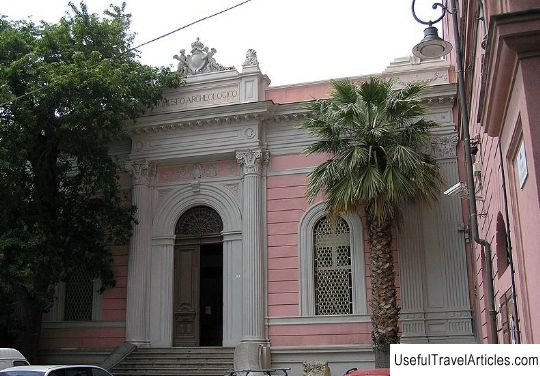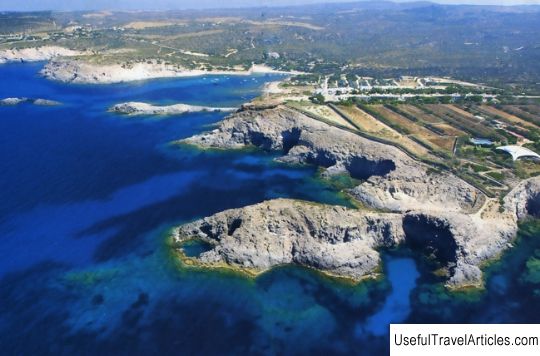Necropoli Tuvixeddu description and photos - Italy: Cagliari (Sardinia)
Rating: 7,8/10 (542 votes) 
Necropoli Tuvixeddu description and photos - Italy: Cagliari (Sardinia Island). Detailed information about the attraction. Description, photographs and a map showing the nearest significant objects. The title in English is Necropoli Tuvixeddu. Photo and descriptionThe Tuvixeddu necropolis, located in the vicinity of the city of Cagliari in Sardinia, is one of the largest and most important necropolises in the Mediterranean region. In total, over 1100 tombs of the Carthaginian and Roman periods were found on its territory, which differ in a variety of forms. In particular, two ancient Carthaginian tombs of the 4th-3rd centuries BC deserve special attention. - both with well-preserved paintings. The name of the first - Tomba del CIS - comes from the image of a man in a helmet and with a spear, who is considered to be the Phoenician god of war, Sid. And in the second grave you can see a frieze depicting a winged Egyptian cobra with a sun disk - a typical Phoenician symbol. Other monuments of antiquity in Cagliari are no less interesting. For example, the Roman amphitheater, built in the 2nd century AD, it is one of the most outstanding monuments of the period of antiquity in Sardinia. Located at the foot of the hill, the amphitheater was partly carved into the rock, and partly built from limestone from local quarries, and could accommodate up to 10 thousand spectators. The entire structure has been exquisitely finished and veneered, as can be seen on the numerous marble tablets found during archaeological excavations. On the stage of the amphitheater, gladiator fights, theatrical performances, and death sentences were carried out. And today concerts and various shows are organized here in the summer months. Cagliari and Villa Tigellio are worth seeing, an antique complex named after the wealthy and extravagant Roman poet and singer who was believed to be the owner of the villa. In reality, Villa Tigellio is the remains of an elegant residential area from the 2nd-3rd century BC. Here you can see the baths, from which the floor of the caldarium and the steam room have been preserved, and three aristocratic residences. In one of them - Casa del Tablino - fragments of a mosaic covering were found, and in Casa degli Stucchi wall decorations were preserved. Finally, a popular tourist attraction is the grotta della Vipera cave - a grave carved into the rock from the 1st-2nd century AD, located in the necropolis of Sant'Avendrache. The entrance to the cave is made in the form of a temple facade with columns, and two snakes are carved on both sides of the pediment - a symbol of family fidelity. These images gave the name to the burial: Grotta della Vipera can be translated from Italian as the Cave of the Serpents. The grave is dedicated to the wife of the Roman Lucius Cassius Filippo, who, according to legend, she begged the gods for life for her seriously ill husband in exchange for her own.         We also recommend reading Church of Elijah the Prophet description and photos - Russia - Golden Ring: Palekh Topic: Necropoli Tuvixeddu description and photos - Italy: Cagliari (Sardinia). |




